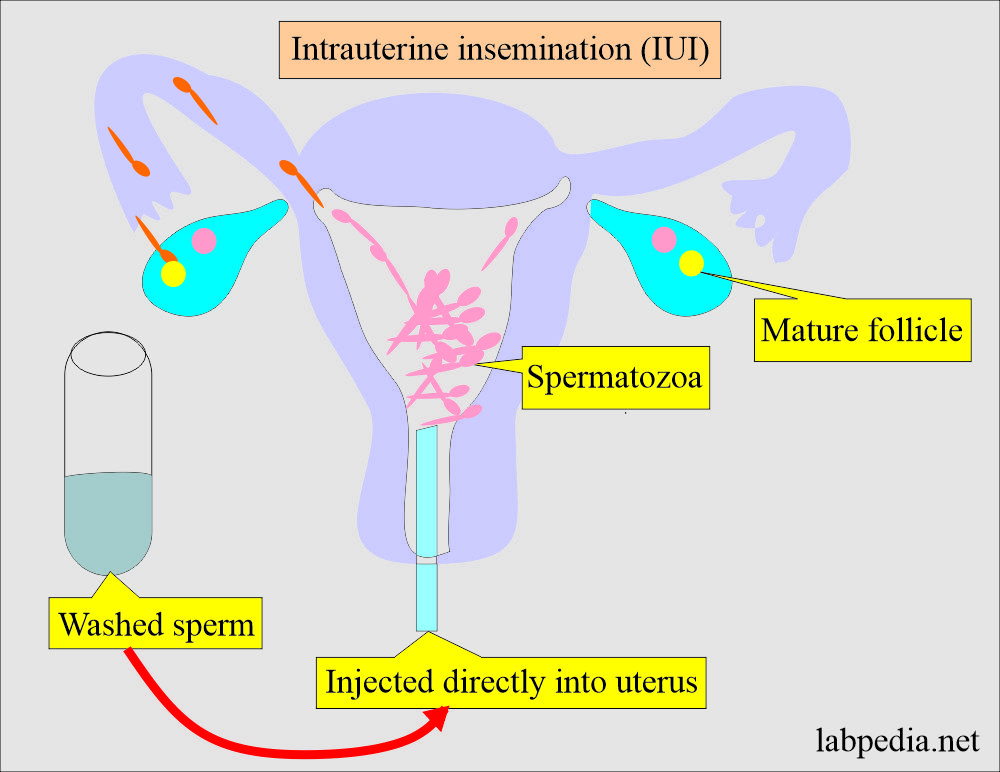Intrauterine insemination, IUI (Semen Preparation)
Intrauterine insemination, IUI
What sample is needed for intrauterine insemination?
- The husband’s semen is needed, which can be directly inserted into the uterine cavity of a wife.
What are the indications, and who is the Candidate for IUI?
- This procedure is useful in a couple where the count is low, but there are normal motile sperms.
- Unexplained infertility.
- Low sperm count.
- When the liquefaction of semen is too delayed.
- Decreased sperm mobility.
- A hostile cervical condition, such as cervical mucus, is too thick.
- Cervical scar tissue from past procedures or endometriosis.
- Ejaculation dysfunction.
- Minimal endometriosis.
- Ladies with coital disorders.
What are the contraindications for Intrauterine insemination?
- This is not recommended for diseases of the fallopian tubes.
- Women with endometriosis (moderate to severe).
- Ladies with a history of pelvic infections.
What is the purpose of Intrauterine insemination?
- Placing the prepared sperm directly into the uterine cavity facilitates the process of fertilization.
- IUI is a fertility treatment that uses a catheter to place many washed sperm directly into the uterus.
- IUI aims to increase the number of sperm that reach the fallopian tubes and subsequently increase the chance of fertilization.
What are the advantages of Intrauterine insemination?
- It is less invasive and expensive than in vitro fertilization (IVF).
- Healthy sperm are injected, which increases the chances of fertilization.
What are the disadvantages of intrauterine insemination?
- The main disadvantage is multiple pregnancies because of the hormones.
- There is a small risk of infection after the IUI.
How will you describe the procedure for Intrauterine insemination?
- A semen sample is collected by masturbation.
- Avoid the use of any chemicals.
- Motile sperms are isolated, and the concentration of sperms is increased.
- Special media is needed to isolate the motile sperm.
- The lab will wash a semen sample to separate the semen from the seminal fluid.
- Monitor the females who were prepared for ovulation by giving them the hormones.
- A catheter is used to inject the processed sperm directly into the uterus.
- This process maximizes the number of sperm cells placed in the uterus.
- Thus increasing the possibility of conception.
- The IUI procedure takes little time and involves minimal discomfort.
How will you prepare the women for intrauterine insemination?
- An ultrasound will monitor the size of the follicles (follicles develop into eggs).
- The hormone, human Chorionic Gonadotropin (hCG), is administered to stimulate the release of eggs from the follicles.
How much is the success rate of intrauterine insemination (IUI)?
- Women under 35 usually have higher rates of success than women over 35.
- The average success rate for IUI ranges from 10% to 20% in one cycle.
- The success rate depends upon the following:
- Primarily on the health of the sperm and the woman’s ovulation status.
- Egg quality and patency of fallopian tubes.
Questions and answers:
Question 1: What is the purpose of IUI?
Question 2: Is there any relation with age for IUI?

